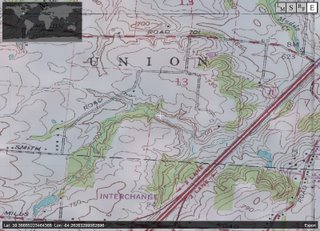Apparently one of the JavaOne announcements this week is that Java EE 5 development is now officially supported by Sun. Get your Mac-ready download here.
Java and Daylight Saving Time
Im a bit surprised that I haven’t heard more about this (perhaps the hysteria will whip up as we get closer to the date). The gist of it is that with the newly enacted Daylight Savings Time (DST) guidelines older Java Virtual Machines (JVMs) will not adjust for DST properly starting in 2007. The first event will happen on March 11, 2007.
If you have been looking for a reason to upgrade to JVM 1.5, this should do.
Java Makes You A Better Programmer?
Tim Bray has a brief posting with what is likely to turn out to be an incendiary issue: if you come from a Java background, you will write better librarys (and code) in other languages than if you didn’t have a Java background. I can see this particularly outraging much of the Ruby crowd, who seemingly live to smugly disparage anything that is not Ruby.
technorati tags: java, ruby, programming, ideas
WW2D – Java-based Google Earth-ish Application

I just stumbled across WW2D, which is a Java-based application that allows you to view and zoom through publicly available map data much like Google Earth does. Granted, it’s not as polished as GE, but does provide much of the same functionality. One big plus, is that you can export a give image location once you locate it (you can’t do this without handing a wad of cash to Google in GE).
I like that WW2D has quite a few user configurable layers, so that I can overlay the satellite image with the USGS Topo Maps for a given view. In fact, the image accompanying this post is a Topo of my neck of the woods.
Another cool thing is that, since it is a Java app, it can run on multiple platforms (Mac, Linux, Unix, Windows) with the same code base. I’m not sure when other application vendors are going to clue into the power (and portability) of Java for these types of applications. I would even say that if a startup requires a desktop component and it is not written in Java, then they really don’t get it.
technorati tags: maps, topo, googleearth, java, satellite
The Value of JSF for Web Development
TheServerSide has a long and heated discussion on the value of using JavaServer Faces for web application development. This was sparked by a blog post with the somewhat incendiary title of “JSF: The 7-Layer Burrito I Won’t Eat Again“.
My question is: why does every discussion about JSF usually end with someone bringing up Tapestry rather than dealing with the merits and liabilities of JSF?
Sun Microsystems Giving Away Software
Sun has announced that they are giving away (providing for free download and use) of all of their server side software and developer tools. I assume that they hope to make money off of services and support (like Red Hat). This also allows them to claim some karma by now having ‘free and open source software’ while making a last ditch effort to compete with Windows.
Frankly, it feels like an act of desperation, as they have seen the open source community eating their lunch in the software arena and Intel in the hardware arena. It also feels like a real opportunity for anyone with an interest in Sun software to download and have a look.
technorati tags: sun, opensource, freesoftware
Sun Java Studio Creator Now Free
If you have been even remotely interested in trying out JavaServer Faces, you might want to pick up a (now) free copy of Sun’s Java Creator IDE (was $99USD). Versions available for Mac OS X, Linux, Solaris and Windows.
If that version of Creator floats your boat, you may want to sign up for the Early Access program for the Creator 2 over at java.sun.com to see what the next generation of tool might be able to do for you.
Online Web Services Programming Class
There is a free online Web Services Programming Class hosted on Yahoo Groups that is starting up today. Note that to participate, you are required to have a Yahoo Groups ID (free, but causes some heartburn to have to sign up).
A free online “Web Services Programming” course is about to
begin on Oct. 26th, 2005 for anyone who wants to learn
Web services programming. In this 13-week course, attendees learn
basic Web Services standards such as SOAP and WSDL, and Java
API’s for Web services such as JAX-WS, SAAJ, and JAXR. The
principles of SOA and relevant technologies such as JBI and
BPEL are also addressed. They also learn how to use NetBeans
IDE effectively for building and deploying Web services.This course runs very much like a regular college course in
which the attendees are expected to do weekly homework and final
project but it is free and can be taken online. There is
also class group alias where attendees can ask/answer questions.
The complete set of course contents (StarOffice slides with
detailed speaker notes and some audio files, homework assignments,
reading materials, code samples, FAQ etc.) are available on the
website of the course.The only thing you have to do in order to join the course is
sending an email towebservicesprogramming-subscribe@yahoogroups.com.
For detailed information about this course, please go to the
following class website.Course website: http://www.javapassion.com/webservices
Course schedule: http://www.javapassion.com/webservices/#ClassSchedule
Course group alias:
http://groups.yahoo.com/group/webservicesprogramming/
WiredReach Content Sharing Platform
WiredReach looks like an interesting idea for sharing content without using shared servers:
The WiredReach Platform allows users to selectively share content with others in a completely decentralized and secure manner. That means your content does not have to be uploaded to any central servers but rather can be shared right from your desktop or device. We use the term “content” very loosely to include things like presence, blogs, bookmarks, documents, calendars, music, photos… virtually any type of social media.
From following the download link, there is a wiredreach.com which provides the development support for the opensource project.
It appears that it is all based on opensource using Java JXTA for some of the underlying network capabilities. There are a number of plugin projects going on to add blogging and various other content type sharing to the core project.
Downloading the Mac OSX version now. More when I have a chance to work with it a bit.
======
Updated 14 September 2005: Granted I didn’t dig too far, but there is really not much to see from what they have available at this point. It looks like many of the plugins and other functionality is not quite there yet. The ability to add a few links to a page and have some rudimentary ‘forum’ functionality is not terribly compelling beyond what you get ‘out of the box’ with a Wiki. The claim in their blurb above about supporting ‘any type of social media’ appears to be a forward-looking statement at this point.
Without setting it up on several machines and emailing notifications to myself, there didn’t seem to be much meat. It would have been nice if there were one or two ‘sample’ sites available that one could connect to get a better feel for the software.
I’ll check back on this in the future, but for now (for me) it doesn’t seem very compelling (and I had high hopes of an awesome JXTA-based application).
